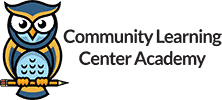|
If one wishes a subject to be taught with maximal effectiveness, he should: Stress the values of data. In this digital age, the world is very data driven. Importance in education has typically been placed on data (facts and information) and the need to know (and retain) as much data as possible. Students who do the best on exams, tend to be those who have retained the most data. But is all data created equally? Not really. Some data has more relevance, more importance and thus more value than others. Key data, or senior data, is that information that is most important and most useful in understanding a subject as a whole. Just memorizing a bunch of information is not very useful to learning about a thing, unless one is able to evaluate that data and determine what information is of high value (and vast importance) and what is of a much lower value of importance. Inculcate (instill by persistent instruction) the individual necessity to evaluate axioms and theories in relative importance to each other and to question the validity of every axiom or theory. We should encourage students to question everything? Yes! How else will they learn something, and learn it well if we don’t challenge them to look at it, question it, try it and discover for themselves if it’s workable information. Why take another’s word for it?
Stress the necessity of individual evaluation of every datum in its relationship to other data. When students have the ability to evaluate data they not only have a wider understanding of the subject, they also learn to form their own opinions and think for themselves. Instead of being spoon-fed data by “authorities,” they are able to research information and make decisions about what is (and is not) important on a much broader scale. It is a skill that will serve them long past their days of homework assignments and term papers. Learning has never been defined as a method of memorization and regurgitation of data. Learning is finding out about new things and finding better ways of doing things. Learning is individual to every student and it should challenge not only the student, but perhaps even the subject itself. |
10
November
